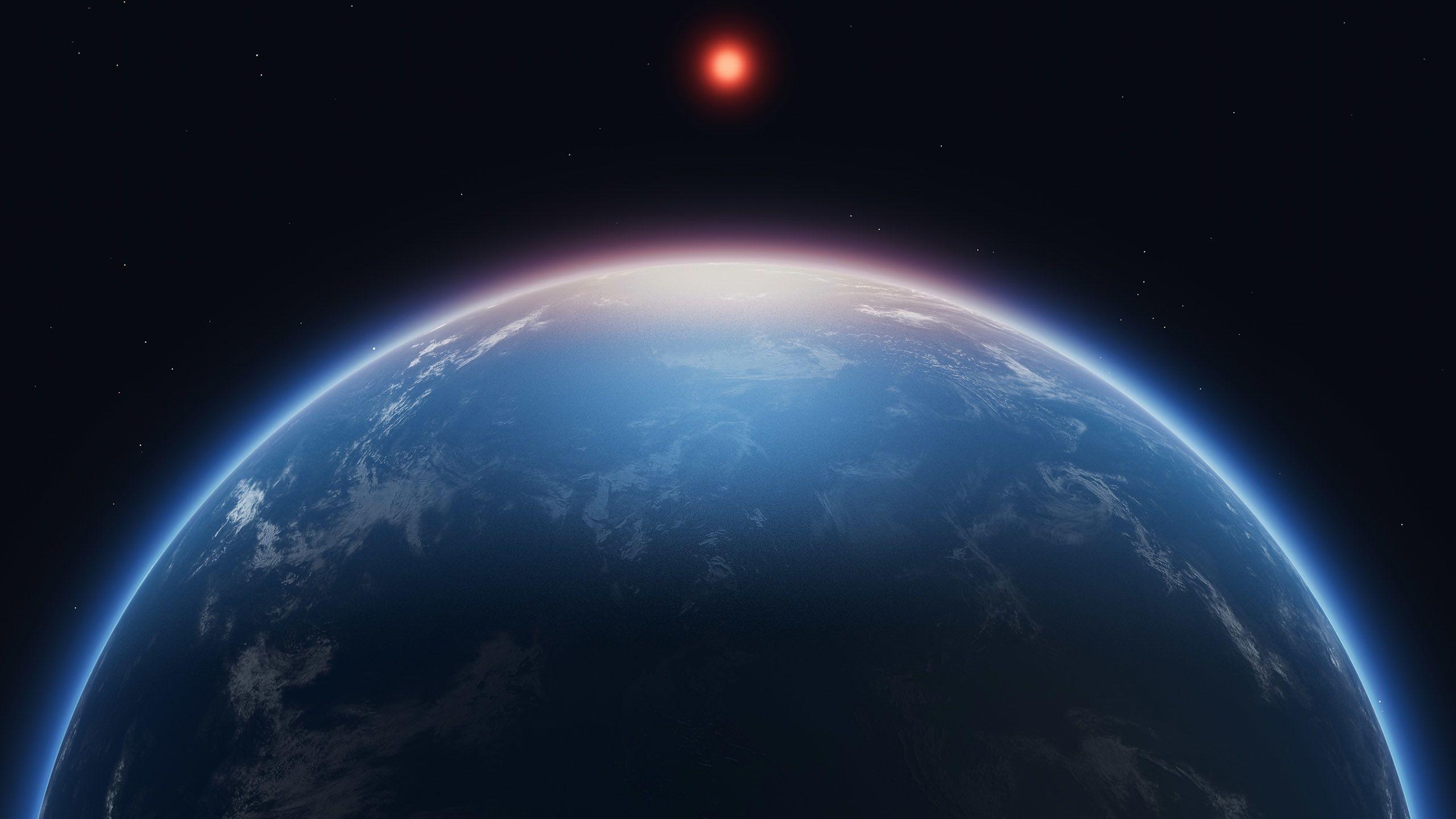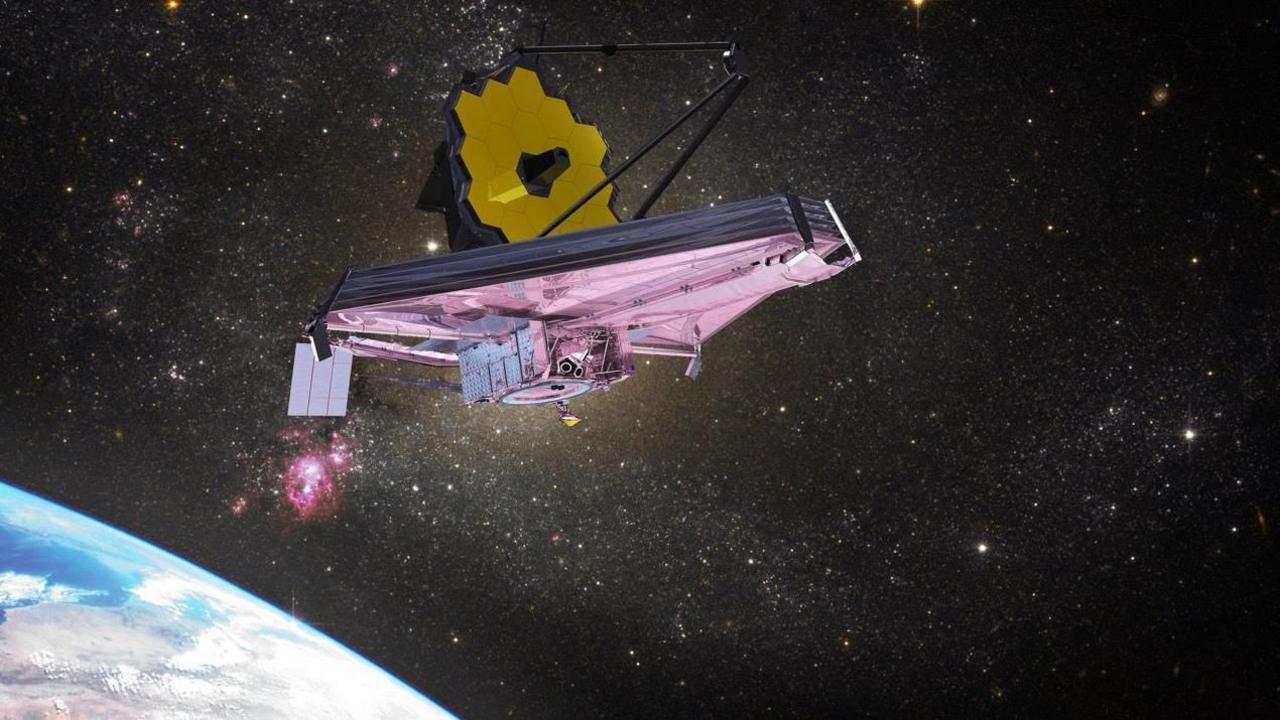Scientists find 'strongest evidence yet' of life on distant planet

Artwork of K2-18b, a faraway world that may be home to life
- Published
Is there life beyond our Earth and solar system?
This is a question scientists, astrologers and astronauts have tried to find the answer to for many years.
Now space experts say they have found more possible evidence that a faraway planet orbiting another star may be home to life.
Researchers from the University of Cambridge found signs of chemicals on the exoplanet K2-18b, which is 124 light years away (around 744 trillion miles).
Scientists want new mission to seek out alien life
- Published10 April
Amazing 'cosmic tornado' captured by James Webb Space Telescope
- Published27 March
Exoplanet with metallic clouds could be shiniest yet
- Published12 July 2023
Big Question: Do aliens exist?
Exoplanets are planets that are beyond our solar system and orbit a different star to our Sun.
The gasses and chemicals that scientists believe they have found there are ones that, here on Earth, are only produced by living organisms such as bacteria.
They were detected by Nasa's James Webb Telescope, the largest, most powerful space telescope ever built.
Although the team and independent astronomers say more data is needed to confirm the findings, the researchers say if they do it could mean planet could be home to alien life.
The research has been published in The Astrophysical Journal Letters.

The James Webb Space Telescope is powerful enough to analyse the atmosphere of planets that are hundreds of trillions of miles away
Lead researcher Professor Nikku Madhusudhan, from the university's Institute of Astronomy, said the discovery gets the human race closer to showing we are not alone in the universe.
"If we confirm that there is life on K2-18b it should basically confirm that life is very common in the galaxy," he told the BBC.
Prof Madhusudhan told the BBC the amount of gas his team found in a single observation window was a good sign.
"This is the strongest evidence yet there is possibly life out there," he said and if the connection with the chemicals and gas is proven, "then this planet will be teeming with life."
The team now want to do more research in a laboratory to check whether the chemicals they've found can be produced by anything other than living organisms.
